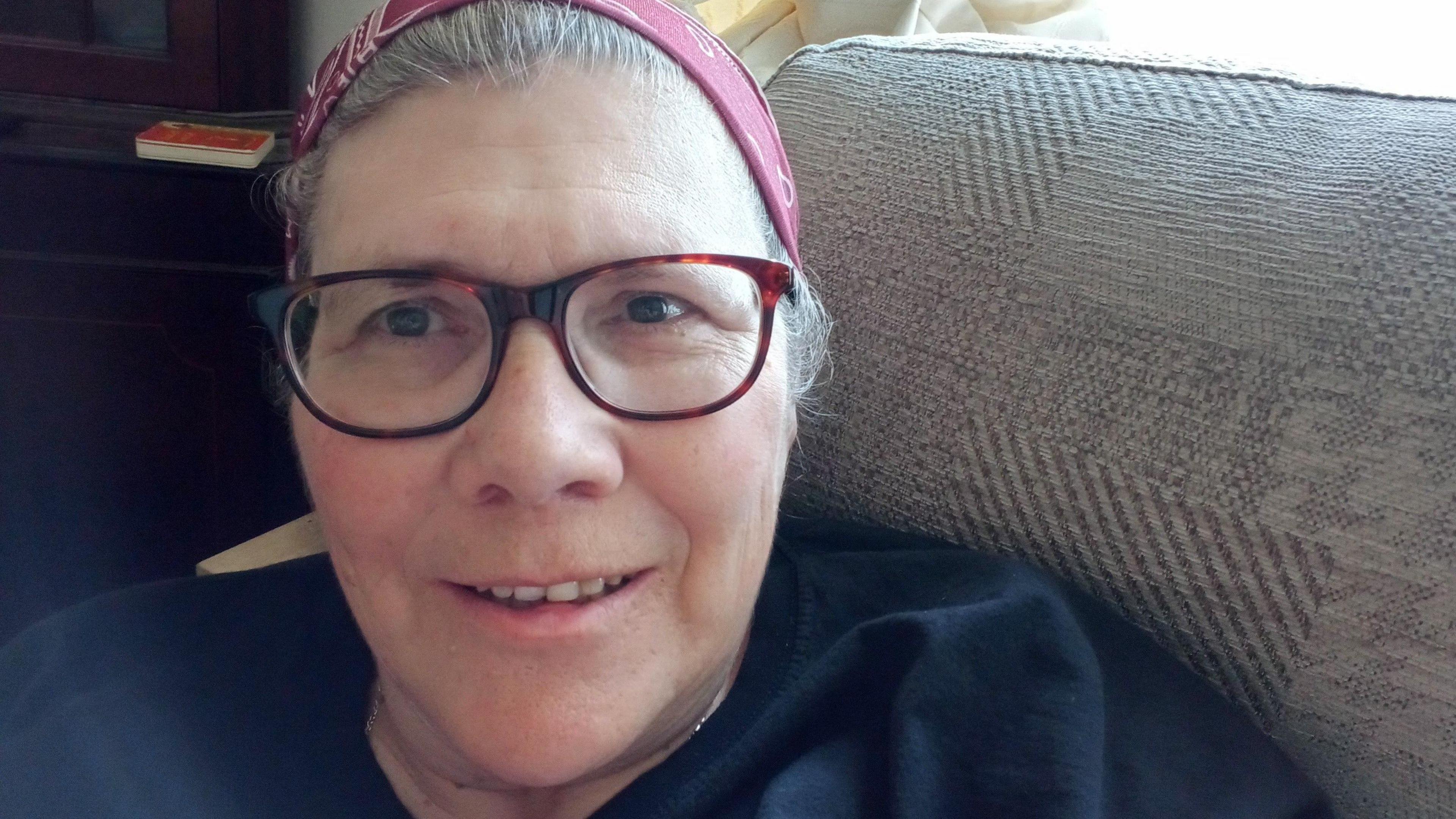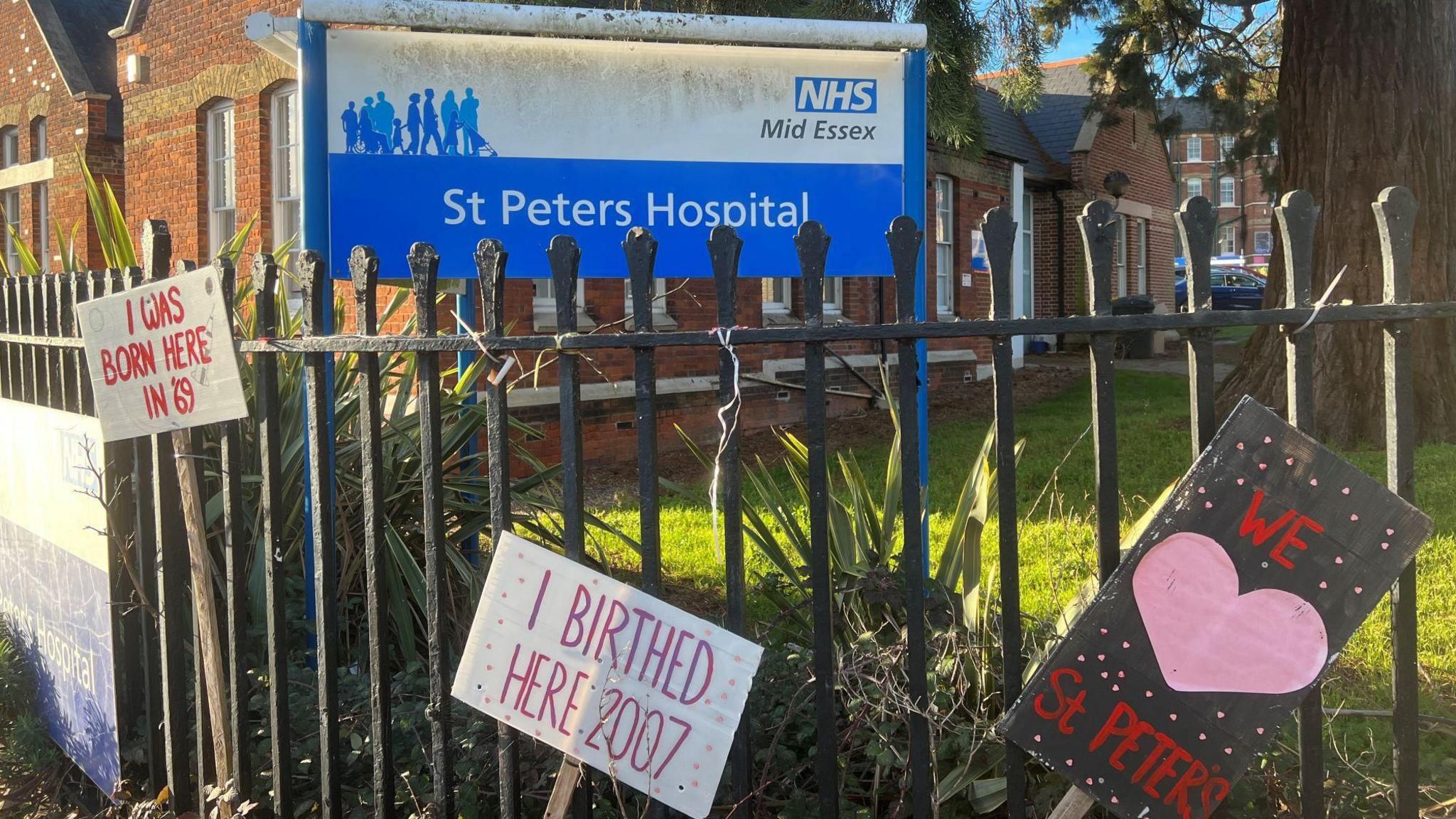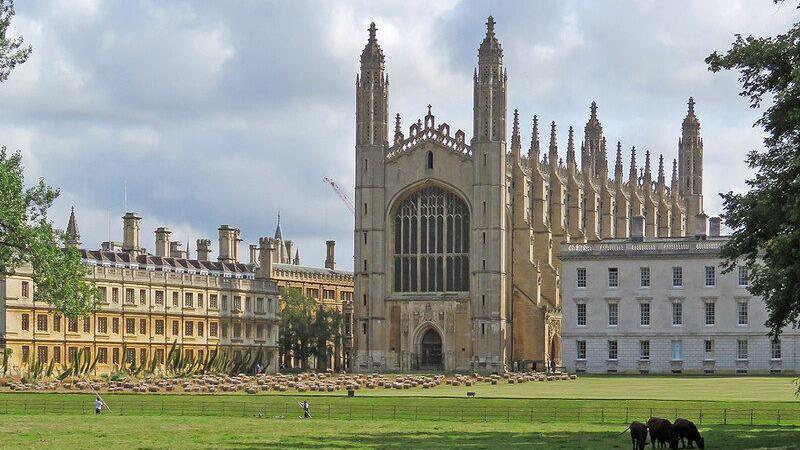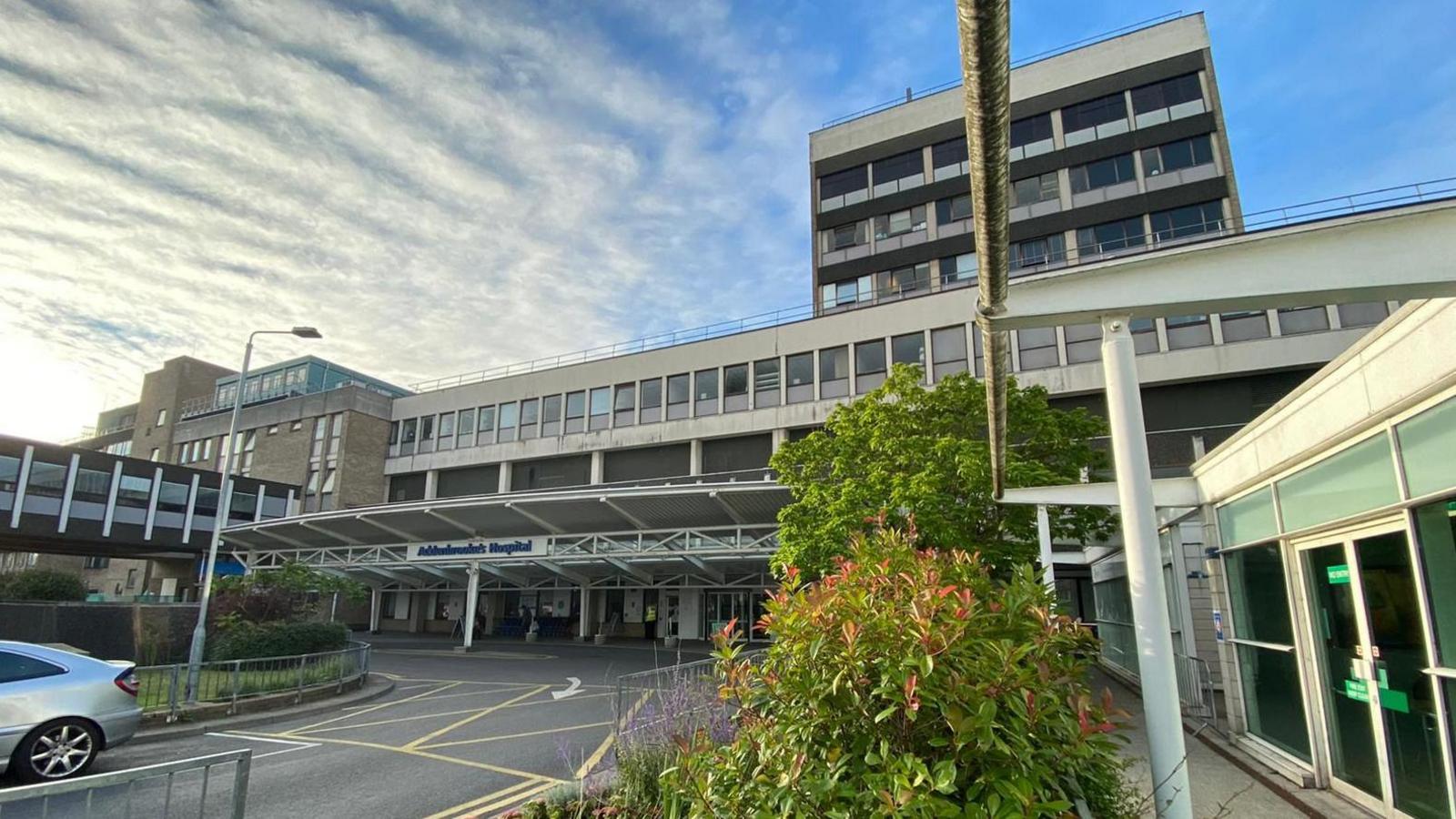Kinship carers feel 'abandoned by the system'

Ann Godefroy wants to know why kinship carers do not receive the same benefits that are afforded to foster parents
- Published
Ann Godefroy and Nicola Allen are both in their mid-50s, and while for some at that age a relaxed retirement is on the horizon, both women became kinship carers - looking after a child from their extended families.
The pair - both from Cambridgeshire - became parents again to young boys, but they despair at the lack of financial and emotional support available.
They were among the many people who got in touch with the BBC via Your Voice, Your Vote and they told us that kinship caring was the most important issue for them in this election.
"There is little or no financial support for the thousands of us who are saving the state money by keeping these children out of the care system - there is support and allowances for fosterers - we just want to be on a par with them," says Ms Godefroy.
'Left to our own devices'
Ms Godefroy, 56, and her husband, who live in Snailwell near Newmarket, took on their grandson full time when he was just a baby, as his parents were unable to look after him.
They signed a Special Guardianship Order (SGO), which she says means "we have full decision-making responsibility until he is 18".
"We are his parents, basically," she says.
But it comes with costs including nursery education and shortly primary school costs, such as uniforms, as their grandson is now almost four.
Under the SGO scheme they receive an allowance.
"But it's means-tested each year, and we keep losing it," says Ms Godefroy.
"It used to be £230 each fortnight, but when I returned to work it was reduced to £140, which doesn't even cover nursery costs - and soon we will need childcare before and after school."
She fears that allowance could be "taken away altogether".
"We do the same as foster carers but they get about £1,000 a month.
"I know we are basically being parents and we love having our grandson all the time, but it would be good to get respite and the extra support given to fosterers.
"I would like to know how the candidates stand with kinship carers because basically we feel we are being left to our own devices."

Nicola Allen and her partner look after her nephew full-time
Ms Allen and her partner live in March, and are kinship carers to her nephew, who was 13 when he came to live with them.
He is now 16.
"My sister had cancer and her death was very sudden - there was no time for anything like an SGO," says the 55-year-old.
The couple brought up their own three children, who had already left home by the time they became parents to her nephew.
"My partner still works so we are not entitled to any benefits and there is no help - other than support groups formed by other kinship carers.
"My sister fostered children so I know the funding and help [foster parents] get, but of course we were never going to put our nephew through the foster system - he has been through more than too much already.
"But we didn't account for a fourth child, who will soon be going to college.
"My partner really needs to retire because of his health but he can't do that.
"As kinship carers we feel absolutely abandoned by the system.
"A foster carer receives support and an allowance to raise a child - so why don't we?"
A spokesperson from Kinship, a charity supporting kinship carers in England and Wales, said: "While it is encouraging to see kinship care mentioned in all three major parties' manifestos for the very first time, the next government needs to urgently step up for these families - the way they have stepped up for children who need a safe and loving home.
"We are calling on all MP candidates to advocate for kinship carers in their constituencies and want to see party leaders commit to equalising support between kinship families and foster and adoptive families."

'Staying-put arrangements'
We put these concerns to the major political parties.
The Green Party manifesto does not directly relate to kinship care, but says: "The scandal of inadequate and under-funded care for looked-after children cannot be allowed to continue.
"Elected Greens will push for an additional £3bn to be provided to local authorities to enable them to provide high-quality children’s social care.
"Elected Greens will also push for children in foster care or who have been adopted to have consistent access to a trained counsellor until it is no longer required.
"We would fund councils to extend staying-put arrangements, so fostered young people can choose to stay with foster parents until they are 21."
Improving data-sharing
Labour's manifesto, which references kinship, states: "Every child should have a loving, secure home.
"Labour will work with local government to support children in care, including through kinship, foster care, and adoption, as well as strengthening regulation of the children’s social care sector.
"Sadly, too often we see families falling through the cracks of public services.
"Labour will improve data-sharing across services, with a single unique identifier, to better support children and families."
'Loving, stable home'
The Liberal Democrat's education spokesperson Munira Wilson told the BBC: "Kinship carers play an amazing and often unsung role in children’s lives.
"In the midst of a cost-of-living crisis where carers are struggling to afford the essentials, only a tiny proportion of families have access to additional support.
"Liberal Democrats would introduce a statutory definition of kinship care, look to provide a weekly allowance for all kinship carers, and extend Pupil Premium Plus funding to boost education funding for all children in kinship care.
"We also have ambitious plans to expand parental leave to include kinship carers.
"Liberal Democrats will stand up for kinship carers, so that more young people can grow up in a loving, stable home."
Kinship trial
The BBC is yet to receive a response from the Conservative Party or Reform UK.
In December 2023, the Department for Education (DfE) launched its first National Kinship Care Strategy, external.
It included a £16m programme to trial a new "kinship financial allowance" which paid the same as the fostering allowance.
The trial, in eight local authority areas, would "gather robust evidence" on how the new allowance could have an impact on kinship families and local authorities.
The strategy report said the DfE would "explore expanding eligibility to broader cohorts of kinship carers and all local authorities in the future."

What really matters to you in this general election? What is the one issue that will influence your vote? Click the button below to submit your idea, and it could be featured on the BBC.
Related topics
- Published23 June 2024

- Published23 June 2024

- Published22 June 2024
